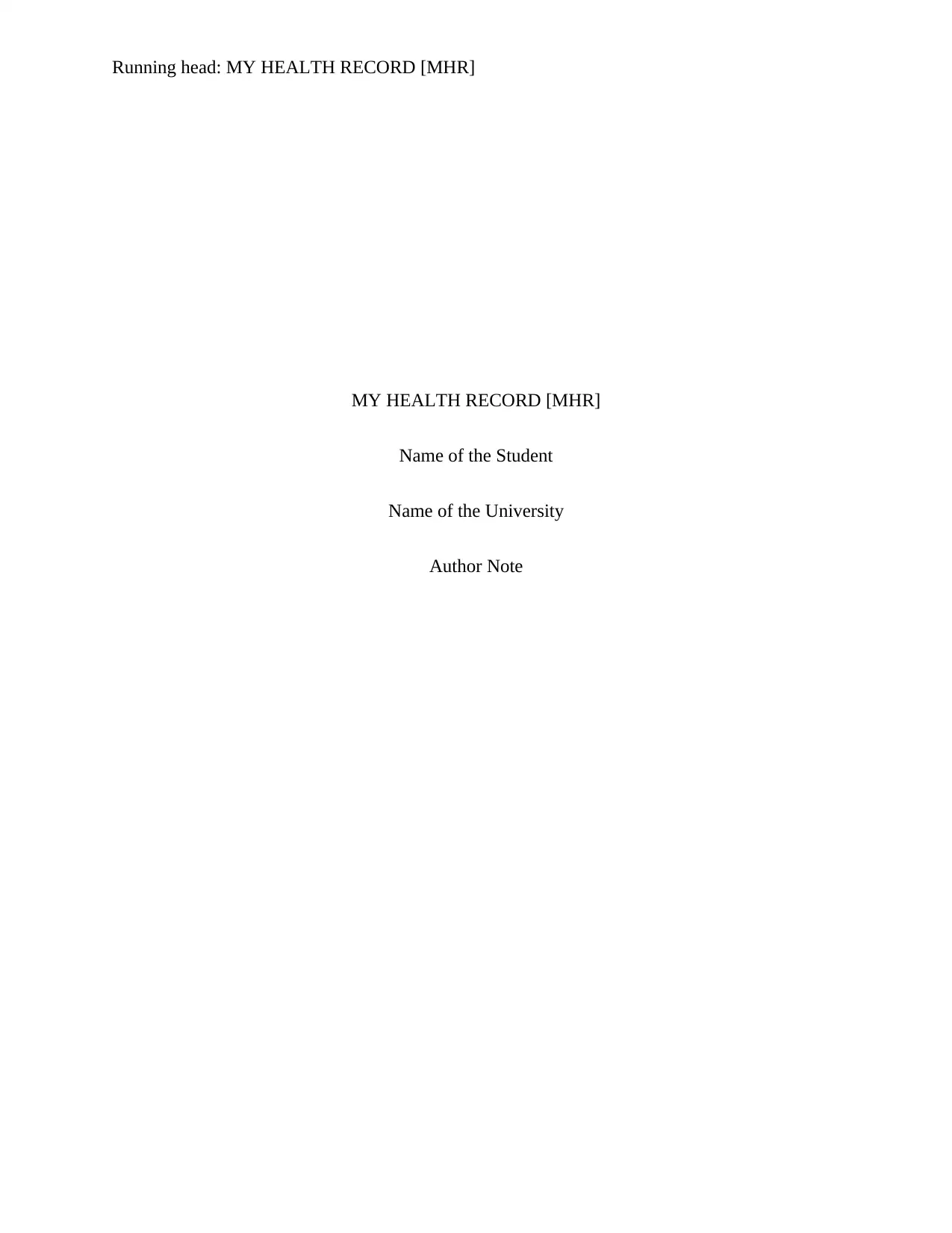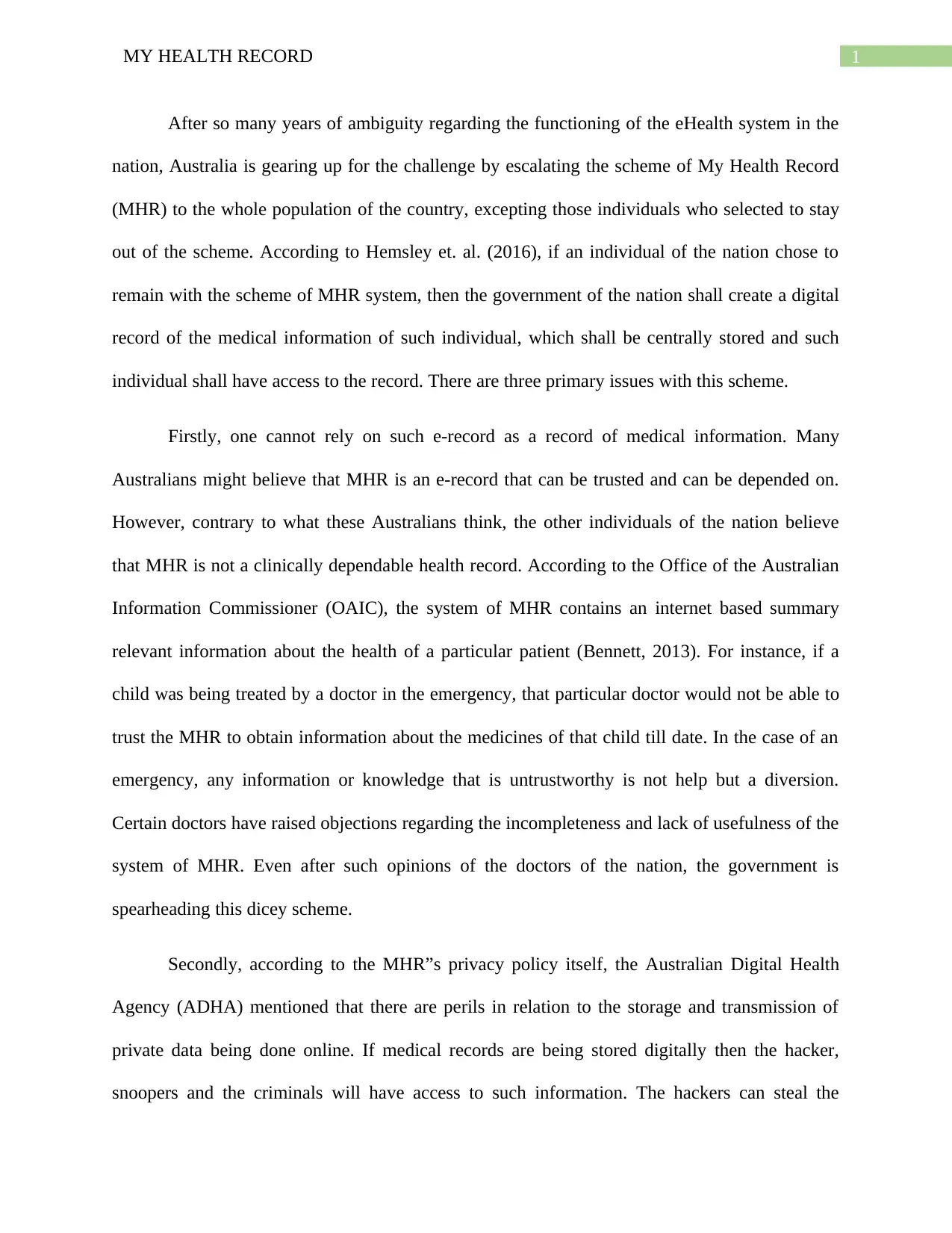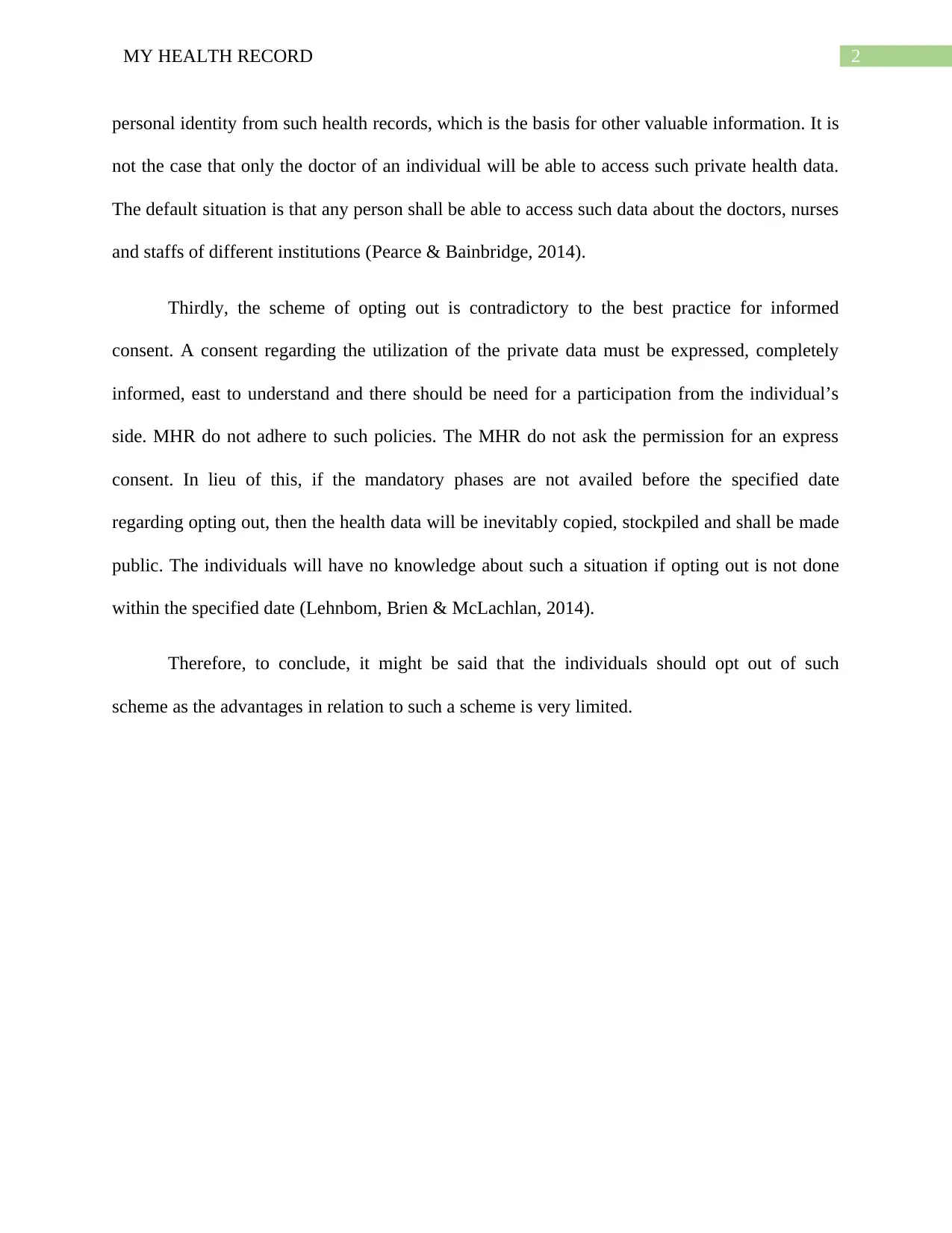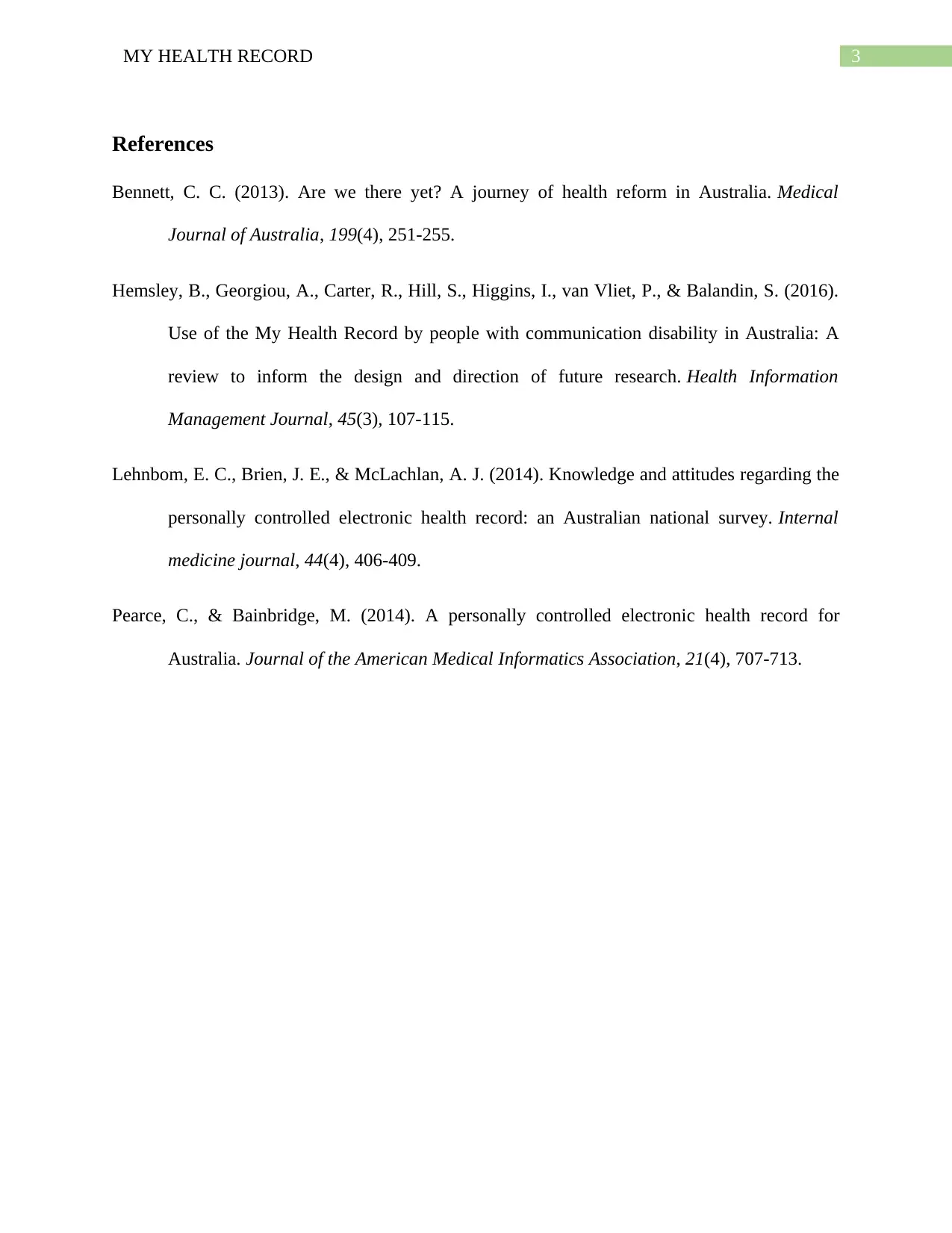My Health Record: Examining Privacy, Reliability, and Consent Issues
VerifiedAdded on 2022/12/28
|4
|849
|68
Essay
AI Summary
This essay critically analyzes the My Health Record (MHR) system in Australia, examining its implications for data privacy, reliability, and informed consent. The author highlights three primary issues: the lack of trust in the e-record as a dependable source of medical information, the risks associated with storing and transmitting private data online, and the contradiction of the opt-out scheme with best practices for informed consent. The essay references several sources to support the arguments, including the opinions of doctors and the privacy policy of the Australian Digital Health Agency (ADHA). The author concludes by recommending that individuals should opt out of the scheme due to the limited advantages it offers. The essay provides a comprehensive overview of the challenges associated with the MHR system, making a strong case against its implementation.
1 out of 4










![[object Object]](/_next/static/media/star-bottom.7253800d.svg)